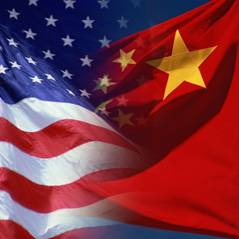China's Solar Industry Should Be Held Accountable For Breaking Trade Laws
 A simmering trade dispute between the U.S. and China will likely come to a head tomorrow when the U.S. Department of Commerce issues its determination on alleged trade violations by Chinese solar manufacturers. Surprisingly, the U.S. solar industry is not in agreement on the need to hold the Chinese accountable. It should be.
A simmering trade dispute between the U.S. and China will likely come to a head tomorrow when the U.S. Department of Commerce issues its determination on alleged trade violations by Chinese solar manufacturers. Surprisingly, the U.S. solar industry is not in agreement on the need to hold the Chinese accountable. It should be.On one side are those who claim China has been illegally subsidizing and dumping its solar products in the U.S. market, forcing many American manufacturers into bankruptcy. These companies, mostly manufacturers of solar panels and related products, claim Chinese solar companies have benefited from government largesse in the form of free land and facilities, electricity and water, and low- or no-cost loans that keep prices for Chinese-made solar products artificially low. In addition, they claim these Chinese companies are illegally “dumping” their cheap solar panels into the American market, making it nearly impossible for U.S. manufacturers to compete.
On the other side are those, mostly solar installers, who have benefited from the ability to buy low-cost solar panels, which they claim has allowed them to do solar installations at a lower cost and therefore expand the use of solar power in America. This group of U.S. companies argues that U.S. manufacturers can’t compete with the Chinese when it comes to solar panel production, because the Chinese are simply more efficient and can do production at a lower cost. They also worry that pursuing a trade case will incite a “trade war” with China, which will erode their profit margins, slow U.S. industry growth across the value chain, and make it even harder for solar energy to compete with traditional fossil fuels.
Both sides have compelling arguments. So who’s right?
One way to answer that question is to say that we’ll find out who’s right when the Department of Commerce issues its findings. Commerce has already found that China is unfairly subsidizing its solar industry, and has imposed tariffs on Chinese solar manufacturers as a result. The upcoming decision, on whether China is also illegally dumping those panels into the U.S. market, may bring larger tariffs if China is found to be in violation of our mutually-agreed-upon, and heavily negotiated, trade agreements. The entire point of the trade enforcement regime is to figure out whether a country is in fact breaking the rules, and if so, to issue sanctions. It’s a system based on the rule of law, something we Americans hold dear, and for good reason.
But would a decision against China undermine America’s emerging solar energy industry? There is no question that solar energy faces an uphill battle in the U.S. The combination of century-old subsidies to fossil fuel companies and the lack of any real national commitment to renewable energy makes it difficult for emerging energy technologies to compete here. But that doesn’t mean that the United States needs cheap Chinese solar panels so badly that we should just roll over and let a foreign government break enforceable international trade rules. If Commerce finds that the Chinese government has acted illegally, then the Chinese government and the industry it is subsidizing should pay a price for that behavior.
Our faith in the rule of law is too important for us to abandon our international trade obligations in favor of cheap imported solar panels. So, too, is our need to support the U.S. manufacturing sector by protecting it from unlawful trade practices. Manufacturing is a crucial piece of the U.S. economy. Our ability to stay innovative and competitive in a time of intense global pressures relies on manufacturing companies, which contribute fully 70 percent of all the private research and development spending in America. And these companies are major job creators: a recent report by SEMI found that manufacturing jobs had the highest job multiplier of any segment of the American economy.
That’s why we should be supporting clean energy manufacturers in their efforts to compete with China, through programs like the Clean Energy Manufacturing Tax Credit program that President Obama recently urged Congress to extend, or through Senator Sherrod Brown’s “Security and Energy in Manufacturing Act,” rather than punishing them for trying to compete on a level playing field. Because that’s the crucial point: every American company should be able to compete on a level playing field in the international marketplace. That’s good for solar manufacturers in the current case, but it’s good for all American companies – and for our economy as a whole – in the long run.
You can return to the main Market News page, or press the Back button on your browser.

